
Akram Khan Company Outwitting the Devil

Akram Khan Company Outwitting the Devil
Event details
👉 Ticket code sent via text message starting with【SMG LIVE】
👉 Each Attendee Requires a Ticket. Children under 1.2m must be accompanied by their parents, infants are not allowed, and children should be reminded not to make any noise during the performance, otherwise the concierge will ask them to leave.
👉 No Cancellation
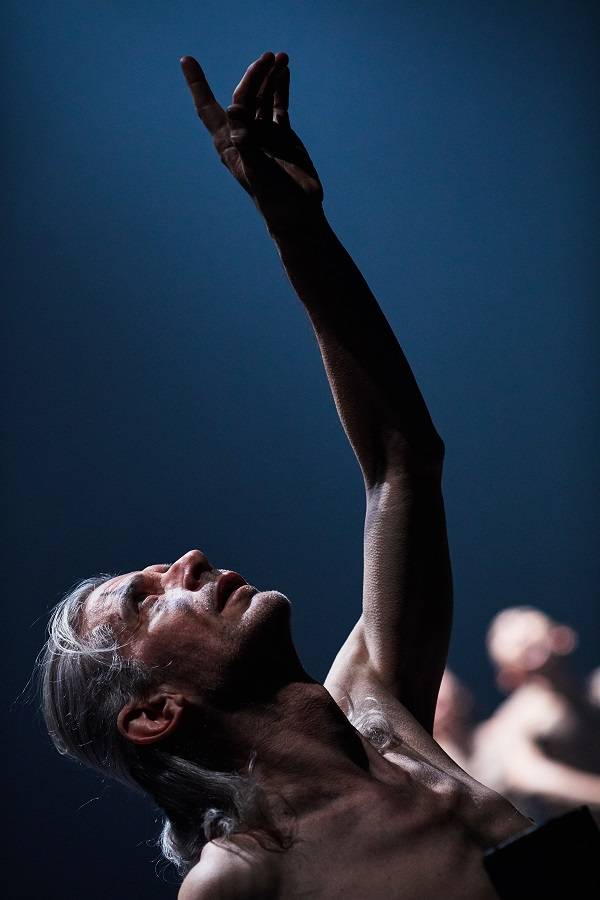
Introduction
Outwitting the Devil is inspired by a fragment of the 12 broken clay tablets which together make up one of the world’s oldest great works of literature, the ancient Sumerian Epic of Gilgamesh. Akram Khan’s new work embodies a violent chapter in young Gilgamesh’s life, read and recalled by his older, dying self. It tells the story of Gilgamesh’s domestication of and friendship with the wild man Enkidu, their journey to the vast Cedar Forest, home to wild beings and spirits, and the slaughter of its guardian Humbaba. Fuelled by strength and pride, Young Gilgamesh determines to establish his fame and fortify the city of Uruk as a monument to himself. But the killing of Humbaba and destruction of the forest and its animals angers the gods, who punish the young king by taking the life of his beloved Enkidu. Confronted with the truth and sorrow of human mortality, Gilgamesh passes into history, to become a fragment among the broken remnants of human culture and memory. Outwitting the Devil is a myth of all times, for our times.
Central to Tom Scutt’s design for Outwitting the Devil is a large black wooden box; it suggests a table, and also a tomb - the first as well as the last supper. It is both a meeting place and a monument, and it sits among hundreds of fragments and remnants suggesting the ruins of human culture and the despoliation of the natural world. The idea of the first supper took us back to the origin stories of one of the world’s first ‘civilisations’ – that of ancient Sumer – recorded in the Epic of Gilgamesh some 4000 years ago.
Gilgamesh may have been an historical king of Uruk in Southern Mesopotamia. His rule coincided with the rise of large walled cities, stratified urban culture, slavery, warfare, literary writing, and the creation of historical records.
His culture was patriarchal and hierarchical; his gods took human form and were thought to have made mankind – like the tablets on which scribes recorded his timeless deeds – out of clay. But people, like clay tablets, like the great city of Uruk and Sumerian civilisation itself, fall and break. Among the fragments of the Epic unearthed in Iraq in 2011 was a clay shard containing 20 previously unknown lines from Tablet V. They describe Gilgamesh’s awe at the abundance and biodiversity of the great Cedar Forest, and Enkidu’s shame at having reduced it ‘to a
wasteland’. This is, in effect, the world’s first environmental poem.
Outwitting the Devil is at once a memory and a confession, a puzzle pieced together in the dark that contains the story of who we once were, and may again become.
“As I arrive at the end of my dancing career, I have awakened to a new way of dancing. And that is to dance my ideas through the bodies of others, including older dancers, who carry their histories and complex emotional experiences within them. But what remains unchanged is my passion for exploring old and new myths in the context of our times.” – Akram Khan
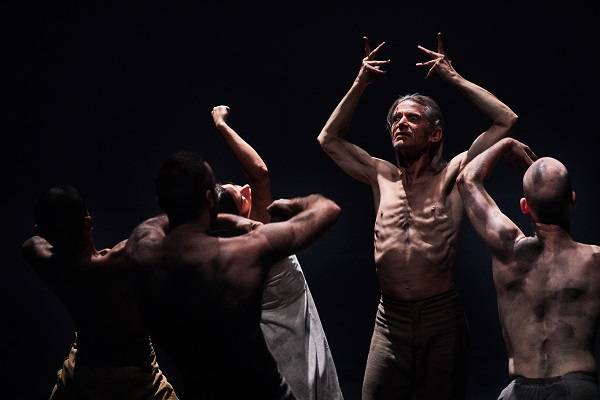
Press excerpts
“The performers, aged from 25 to 68, all exceptional, from different cultures and techniques - bharata natyam, contemporary, classical and traditional, hip-hop ... – develop a sophisticated choreography to the end of their toes. Graceful and sharp, between heaven and earth with its pliés at ground level and the eyes upwards, very animal too, the gesture captures, catches, bites, hugs, strangles. The swirling round dances raise a storm, about sacrifice and revenge. […] With Outwitting the Devil, Akram Khan asserts an aesthetic and political turn.” — Le Monde
“This creation is a marvel, to which the Cour d’honneur has offered all the expected breadth.
The beauty of the choreographed body animates a telluric dance that seems to go back beyond time, beyond the Antique. The dancers are meeting a Michelangelo and a Delacroix. [...] The original electronic music by Vincenzo Lamagna echoes brightly in the courtyard. Its intense bass, diffuse sounds and convulsive rhythms, pulsate an immemorial Sabbath. The bodies bend to this contemporary music, at the same time archaic. An alchemy serving a story and a sensitive dramaturgy, understandable beyond words.” — France Info
“A masterpiece, inspired by the myth of Gilgamesh. A show of great depth whose powerful echoes resonate with the news. [...] Between turmoil and bewitchment, the audience receive with full force the lessons of this story that hiccups and repeats itself tirelessly. A great storyteller, a conductor – at times of a demanding ritual, Akram Khan conjures everyone to challenge the subversive Devil, hidden in the darkest parts of the human being.” — La Croix
“Minimalist yet mesmerizing fresco. […] The ecological dimension before the time of the poem, recalling the need to protect natural resources, inspired Khan to an inhabited choreography. […] Above all, the choreographer brings out older dances, Indian among others, or scenes seeming drawn from a carved bas-relief. Akram Khan avoids the pensum to connect to the movements of life.” — Les Echos
“The effect of rhythms builds a hypnotic mechanics that conveys the fight as much as the terror. [...] One comes out of Outwitting the Devil more aware than ever of the ephemeral nature of existence.” — La Provence“Close to a restorative ritual, the show conjures up the founding myths to rejuvenate their key meaning. Through a carnal and expressive dance. [...] More than a catharsis (or purification of passions), Akram Khan’s dance brings together and reconciles energies.” — Paris art.com
“A show that begins as a twilight and continues as a devastating whirlwind, an immemorial landslide whose ferocious, animal dance is part of a telluric musical score, punctuated by the hell of sensations. [...] A moment of dance, music and text dazzling with power and gravity, a moment of absolute perfection.” — Artistikrezo.com
“In this piece, cooperating with six exceptional international artists representing many different countries and cultures, Akram Khan explores new forms and styles with inexorable and unconditional ferocity. Moments of fastmoving, almost joyous folk-themed dances, arms held upwards as if thanking the gods for their very existence, offered slight respite and relief to the majority of the movement, often slow and deliberate, highlighting a profound sense of despair. […] A truly magnificent work of art!” — Dance Europe
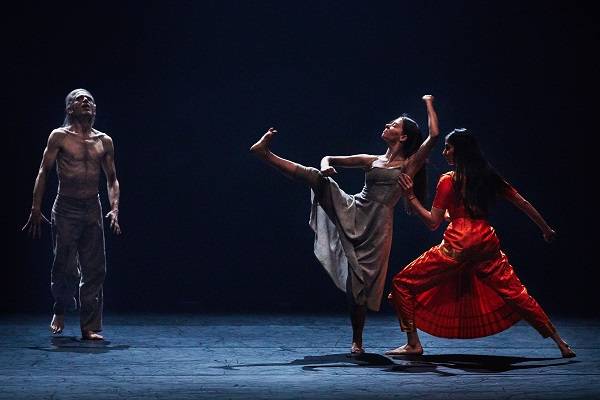
Akram Khan
Artistic Director/Choreographer
Akram Khan is one of the most celebrated and respected dance artists today. In the last 22 years he has created a body of work that has contributed significantly to the arts in the UK and abroad. His reputation has been built on the success of imaginative, highly accessible and relevant productions such as Outwitting the Devil, XENOS,
Until the Lions, Kaash, iTMOi (in the mind of igor), DESH, Vertical Road, Gnosis and zero degrees. As an instinctive and natural collaborator, Khan choreography is the embodiment of shared exploration across multiple disciplines and cultures. His previous collaborators include the National Ballet of China, actress Juliette Binoche, ballerina Sylvie Guillem, choreographers/dancers Sidi Larbi Cherkaoui and Israel Galván, singer Kylie Minogue and indie rock band Florence and the Machine, visual artists Anish Kapoor, Antony Gormley and Tim Yip, writer Hanif Kureishi and composers Steve Reich, Nitin Sawhney, Jocelyn Pook and Ben Frost.
Khan’s work is recognised as being profoundly moving, in which his intelligently crafted storytelling is effortlessly intimate and epic. Described by the Financial Times as an artist “who speaks tremendously of tremendous things”, a highlight of his career was the creation of a section of the London 2012 Olympic Games Opening Ceremony that was received with unanimous acclaim.
As a choreographer, Khan has developed a close collaboration with English National Ballet and its Artistic Director Tamara Rojo. He created the short piece Dust, part of the Lest We Forget programme, which led to an invitation to create his own critically acclaimed version of the iconic romantic ballet Giselle. In recent years, Khan has moved into television, specifically documentaries. He has created 3 documentaries with Swan Films for Channel 4, the Sky Arts documentary series Why Do We Dance, and an episode of the Netflix series MOVE.
Khan has been the recipient of numerous awards throughout his career including two Laurence Olivier Awards, the Bessie Award (New York Dance and Performance Award), the prestigious ISPA (International Society for the Performing Arts) Distinguished Artist Award, the Fred and Adele Astaire Award, the Herald Archangel Award at the Edinburgh International Festival, the South Bank Sky Arts Award and nine Critics’ Circle National Dance Awards. Khan was awarded an MBE for services to dance in 2005. He has recently been announced as the new Chancellor of De Montfort University, and he is also an Honorary Graduate of University of London as well as Roehampton and De Montfort Universities, and an Honorary Fellow of Trinity Laban.Khan is an Associate Artist of Sadler’s Wells, and Mountview Academy of Theatre Arts, London and Curve, Leicester.
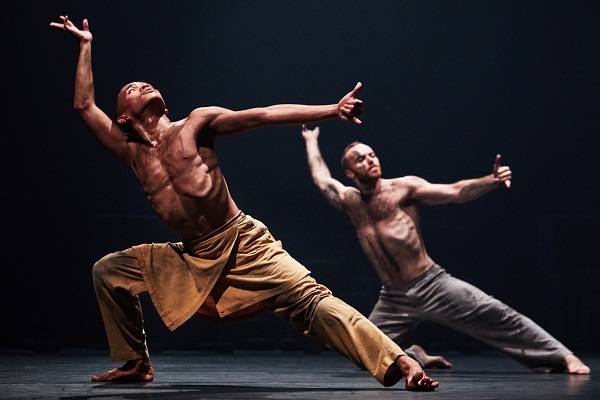
Artistic team & credits
Artistic Director/Choreographer Akram Khan
Dramaturg Ruth Little
Dancer Mythili Prakash / Luke Jessop / Jasper Narvaez / Louis T. Partridge /
Elpida Skouro / François Testory
Lighting Designer Aideen Malone
Visual Designer Tom Scutt
Original Music Score and Sound Design Vincenzo Lamagna
Costume Designer Kimie Nakano
Writer Jordan Tannahill
Creative Associate and Coach Mavin Khoo
Rehearsal directors Andrew Pan Wui Min
Material performed by Mythili Prakash or Pallavi Anand, Luke Jessop, Jasper Narvaez, Louis T. Partridge, Elpida Skourou, François Testory
Executive Producer Farooq Chaudhry
Technical Director Zeynep Kepekli
Technical Manager Michael Cunningham
Stage Manager Lars Davidson
Lighting Engineer David Salter
Sound Engineer Peter Thomas
Project/Tour Manager Mashitah Omar
Tour Manager Assistant Svitlana Bil
LED Light Tube manufactured and supplied by Light Contrast Ltd
Original material devised by Ching-Ying Chien, Andrew Pan, Dominique Petit, James Vu Anh Pham, Mythili Prakash, Sam Asa Pratt
Notice
Date: 19:30, October 27-28, 2023
14:00, October 29,2023
Venue: Grand Theater @ Shanghai International Dance Center
Duration: 80 minutes(no interval)
Tickets: 180/280/380/480/580/680/880 RMB
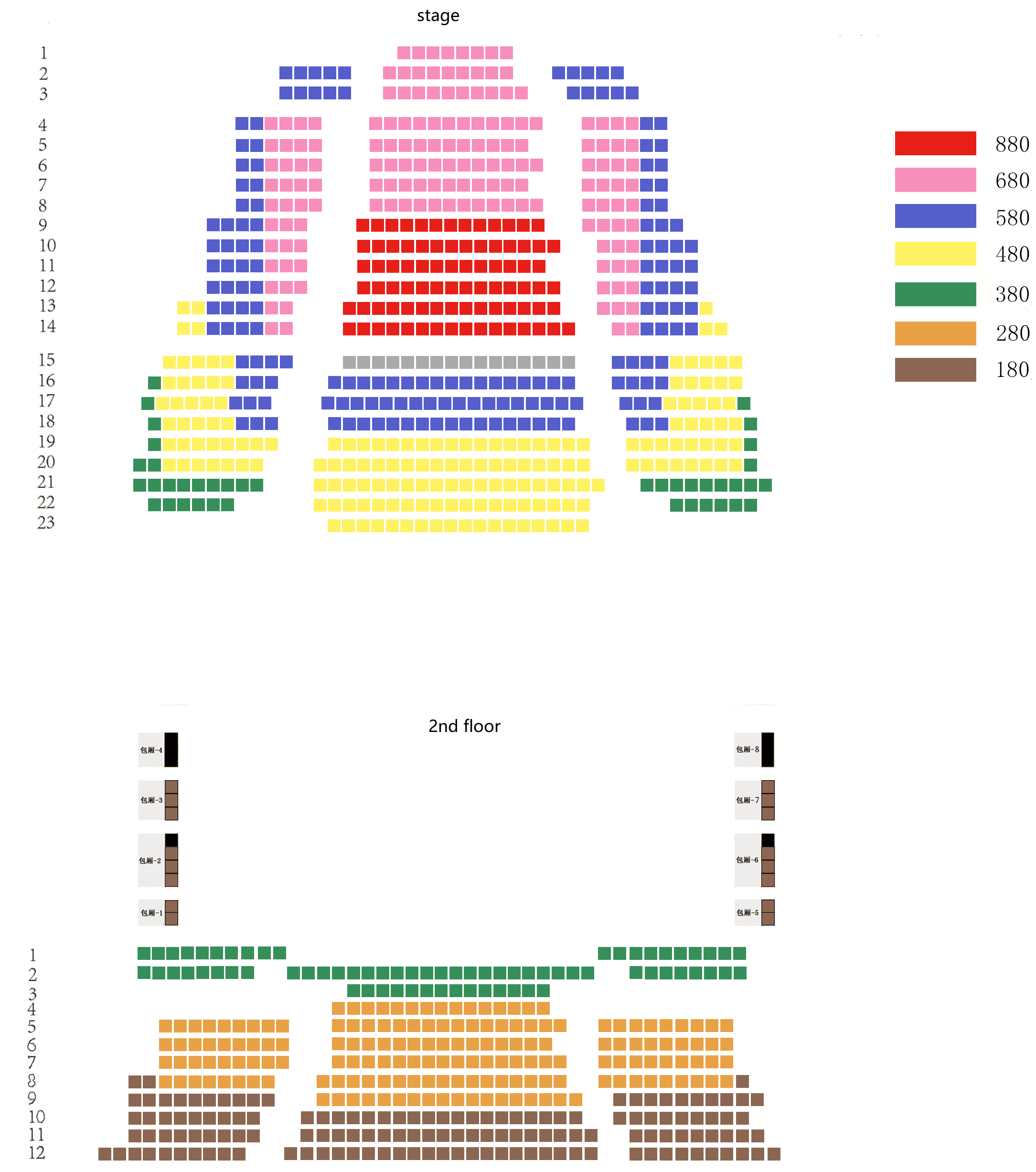

Follow our WeChat for event news, deals, gossip and more!
Akram Khan Company Outwitting the Devil

 Add us on WeChat to speak to our friendly customer service team! ID: love247tickets
Add us on WeChat to speak to our friendly customer service team! ID: love247tickets